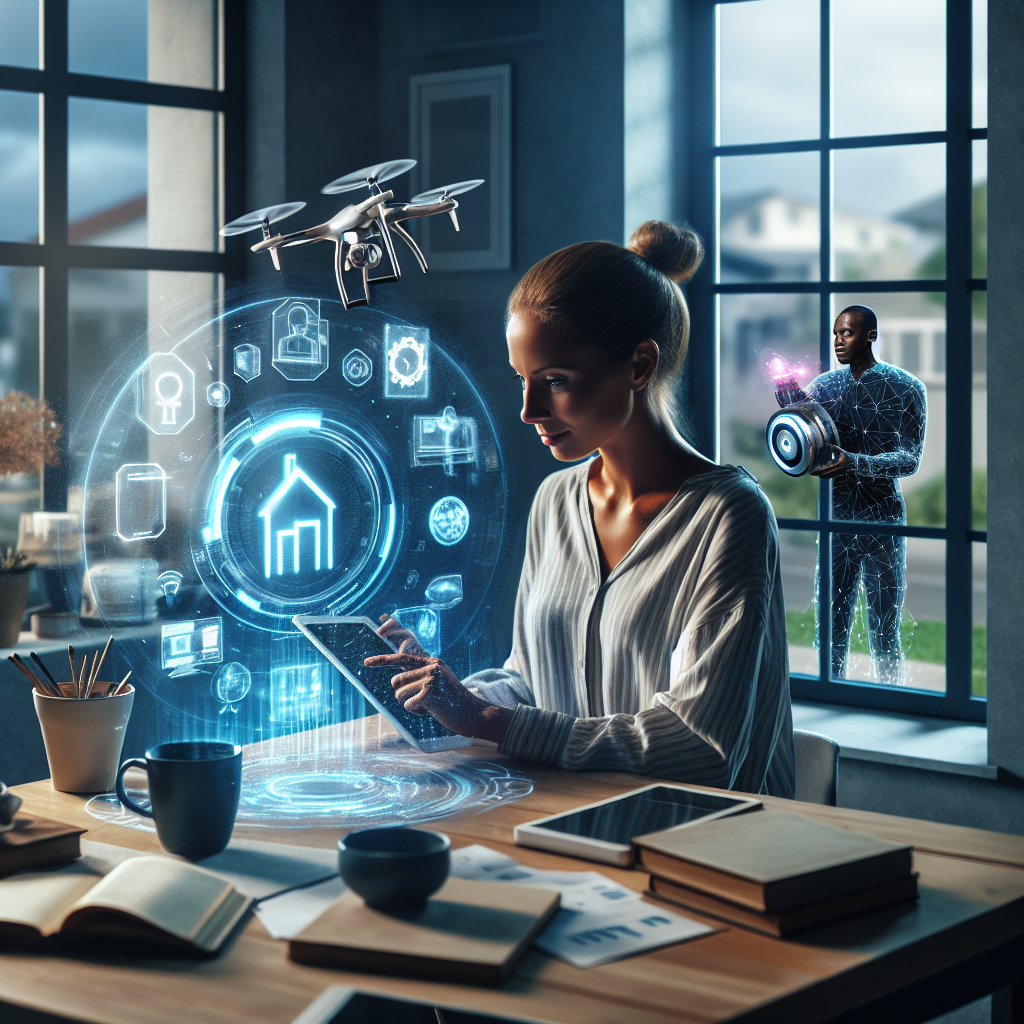Artificial Intelligence (AI) has rapidly become a significant part of our daily lives, influencing how we live, work, and interact with the world around us. From virtual assistants to self-driving cars, AI has the potential to revolutionize various industries and significantly impact our routines. In this article, we’ll explore the profound ways in which AI is shaping our daily lives and the implications of this groundbreaking technology.
The Role of AI in Everyday Devices
One of the most visible impacts of AI on our daily lives can be seen in the proliferation of AI-powered devices. From smartphones and smart speakers to smart home appliances, AI has seamlessly integrated into our everyday routines. Virtual assistants like Siri, Alexa, and Google Assistant use AI algorithms to understand and respond to voice commands, making tasks such as setting reminders, getting weather updates, and conducting internet searches effortless. Furthermore, AI-powered devices can learn user preferences over time, providing a personalized experience that enhances convenience and efficiency.
The Influence of AI in Healthcare
AI has also made significant inroads in the healthcare industry, impacting the way medical diagnoses are made, treatments are administered, and patient care is managed. Machine learning algorithms can analyze complex medical data to identify patterns and make accurate predictions, aiding physicians in diagnosing diseases and recommending personalized treatment plans. Additionally, AI-driven robotic surgery systems have enabled surgeons to perform intricate procedures with precision and minimal invasiveness, leading to better patient outcomes and reduced recovery times.
AI’s Impact on Transportation
The transportation sector has been profoundly transformed by AI, with the development of autonomous vehicles being a prime example. Self-driving cars, equipped with AI technologies such as computer vision and sensor fusion, have the potential to enhance road safety, reduce traffic congestion, and provide mobility solutions for individuals with limited physical abilities. Additionally, AI-powered navigation systems optimize route planning and real-time traffic updates, improving the overall travel experience for commuters.
The Ethical and Societal Implications of AI
While the integration of AI into our daily lives offers numerous benefits, it also raises ethical and societal concerns that warrant careful consideration. The use of AI algorithms in decision-making processes, such as hiring practices and loan approvals, has prompted discussions about algorithmic bias and fairness. Furthermore, the potential displacement of jobs due to automation and the ethical implications of AI in warfare and surveillance necessitate thoughtful dialogue and regulatory frameworks to ensure the responsible deployment of AI technologies.
The Future of AI and Its Impact
Looking ahead, the impact of AI on our daily lives is poised to expand even further as the technology continues to advance. Innovations in AI-driven personalization, predictive analytics, and natural language processing will further enhance user experiences and streamline everyday tasks. However, it’s crucial to strike a balance between embracing the potential of AI and mitigating its potential risks, fostering a future where AI contributes to a more inclusive, equitable, and sustainable society.
Conclusion
In conclusion, the impact of AI on our daily lives is undeniable, with the technology permeating various facets of our personal and professional spheres. From the devices we use to the services we rely on, AI has reshaped how we navigate the world around us. As AI continues to evolve, it’s imperative to actively engage in discussions about the ethical, societal, and regulatory dimensions of AI to ensure that its impact is harnessed responsibly for the betterment of society.
Frequently Asked Questions
-
How is AI influencing the workplace?
AI is transforming the workplace by automating repetitive tasks, facilitating data analysis, and enabling predictive insights. While AI has the potential to enhance productivity and efficiency, it also raises concerns about job displacement and the need for upskilling the workforce to adapt to the evolving landscape of work.
-
What are the privacy implications of AI-powered devices?
AI-powered devices collect and analyze user data to deliver personalized experiences, raising concerns about data privacy and security. It’s essential for users to understand and have control over the data collected by AI devices, and for companies to uphold stringent privacy measures to safeguard user information.
-
How is AI contributing to environmental sustainability?
AI is being leveraged to address environmental challenges by optimizing energy consumption, predicting natural disasters, and monitoring ecological changes. By harnessing the power of AI, innovative solutions for sustainable resource management and climate adaptation are being developed.
